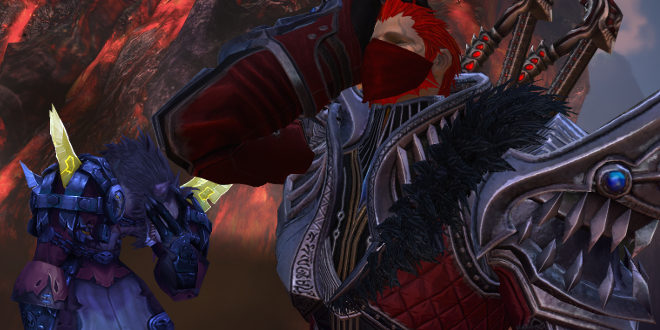MMORPGs have been around for well over a decade now and have seen a huge surge in popularity since they were first made available. Hundreds of MMOs have been born in this time frame, with quite a deal of them seeing success, even in the free to play field. However, recent predictions show that MOBAs are on course to overtake free to play MMOs in revenue, and World of Warcraft’s recent drop in subscribers, totaling nearly 3 million lost subscriptions, and Wildstar’s announcement that they will be dropping their subscription model entirely could mean that not all is well in MMO town.
Is this the beginning of the end for MMOs? Maybe, maybe not, but it is clear that they are not the go-to for cash grabs any more. New MOBAs seem to be springing up faster than anyone could hope to keep up with, while MMOs frequently fall back on the free to play model in the hopes of bolstering a dwindling community.
This is not necessarily a bad thing — a poor game may be more damaging to the image of the genre than no game at all, and if MOBAs become the new poster child for trying to make a quick buck, then more attention may be afforded to the MMOs that are truly deserving of investing your time.
But MMOs are rarely deserving of any special mention, and many fall into the same traps as their brethren. While it is too soon to claim the end is nigh, MMOs will need to be wary of losing the interest of avid gamers — MOBAs may be scratching a competitive itch that MMOs cannot fulfill, and there is no telling how long until a new game comes in to pick apart the rest of the community that remains invested into the genre.
Over their lifespan, MMOs have done very little to actually advance. The first big contender was Everquest, and later came World of Warcraft, which acted as an Everquest for a less hardcore fanbase. Since then, nearly every MMO has offered the promise of "WoW, but better," though often not in so many words. Innovation and originality are rare findings in the MMO market, and even the ones that offer new ideas still fall into many of the same old traps that have kept the genre in a rut for the past decade.
There is no one big thing that acts as the sole problem that MMOs suffer from; instead, there are often numerous little annoyances combined with gigantic design flaws that have slowly drained the vitality out of the bustling genre.
A simple list lacks the grandeur that MMOs deserve; instead, I will be discussing these flaws one at a time in the coming weeks in-depth, going over what pitfalls are holding MMOs back. First shall be what is possibly the most heinous sin of MMOs, and one whose very existence causes every other aspect of these games to suffer.
The Sin of False Progression - Leveling Up and Grinding
Leveling up has been a long-time staple of the RPG. You witness the humble beginnings of the protagonist as he or she grows into a world-saving hero. In tabletop games, character levels are key in determining proper challenges both inside and outside of combat. In single player RPGs, they give you a clear path of progression and let you feel your character, or group, grow into powerful forces to be reckoned with. In MMORPGs, leveling acts as a barrier to entry before you are allowed to do anything that is actually meaningful.
Levels exist in MMOs for no reason other than tradition; they have always been there, so they have to still be there. The formula now is that you start the game, spend time leveling up, and then you get to start playing the actual game once you are done. The actual game, of course, typically involves repetitive grinding, meaning that leveling acts as the pre-grind grind.This formula is rather deceptive and is how many MMOs are able to score good reviews without anyone actually viewing the bulk of the relevant content. The leveling portion of an MMO may as well be a different game entirely — you are given fairly frequent reminders of progress in the forms of ticking over to the next level, you get to see a wide variety of locations and meet potentially interesting NPCs and solve problems that make you feel like a true hero, and you are constantly learning new skills and abilities to leave you with a feeling of fun and excitement. All things that you will never experience again once you get to the real meat of the game: max level. An MMO cannot truly be judged without a fair amount of time spent at max level, and the leveling portion does its best to make the game seem much deeper than it truly is.
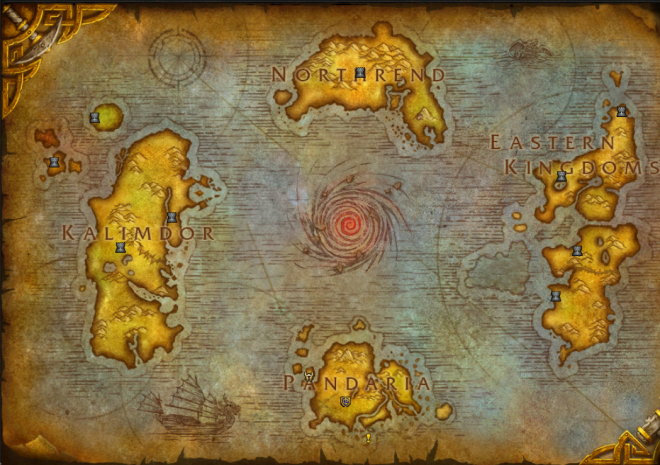
One of the worst examples of this is Star Wars: The Old Republic. The leveling portion of the game gave the strong impression that the developers wished they were working on a single player experience, and a great deal of work went into the impressive story telling and voice acting. Unfortunately, as an MMO, SW:ToR could not just let you be done after finishing the story and instead offered horribly bugged end game experiences that were only challenging because they were functionally broken. The leveling portion of this game was quite literally an entirely different game that focused heavily on an intriguing story, while the bulk of the player’s time will later be spent on forgettable, boring content.
Additionally, leveling acts as a barrier to entry because it can take a significant amount of time. Recently, I tested RIFT, and it took over 100 hours to reach the cap of level 65 — that is over 100 hours of not even seeing what the game is truly about. I was investing my time in the hopes that it would all pay off in the end. I was slogging through repetitive, irrelevant content to reach the cheese at the end of the maze. Upon achieving this goal, I found that there was even more grinding ahead of me before I could partake in what the game truly had to offer, which quickly turned me off. I have not logged back in since.
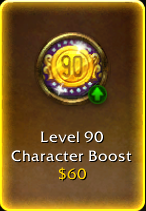
Unfortunately, a closer look reveals that the leveling portion of MMOs is not intended to be beneficial, or even enjoyable, for the player. It is not content made to be loved and enjoyed. No, it is cleverly designed to be just engaging enough that it is not off-putting, but not quite enthusing enough to want to spend significant time doing so. This is where the almighty experience boost comes in. Many MMOs sell boosts for small sums, maybe double your experience gain for a day for a few bucks, so you can blast right through that boring stuff and get to where the action is! World of Warcraft takes it a step further and allows you to instantly boost a character to level 90, meaning you only need to level through the current expansion’s content to get to the meat of the game.
And this, right there, is a problem in itself. The content is boring. It is dull and the developers know it, and they are happy to take your money to let you skip through it as quickly as possible. You pay extra to do less. It would be like slipping your DM a 20 under the table to skip the current dungeon and advance to the next level in Dungeons and Dragons. The difference being that tabletop rpgs are designed to have adequate challenges for any level, where MMOs create this leveling grind out of adherence to pointless tradition. Using tradition to squeeze out a few bucks, essentially.
There is also no real sense of progress while leveling. Ask an avid DnD player the differences between their favored class at level 5 and level 10, and you would be likely to receive an encyclopedia’s worth of information. Ask the same of an avid MMO player and the answer is typically, “who cares, it’s not max level.” It is given no attention, it is imbalanced, and it rarely actually represents how things work later in the game.
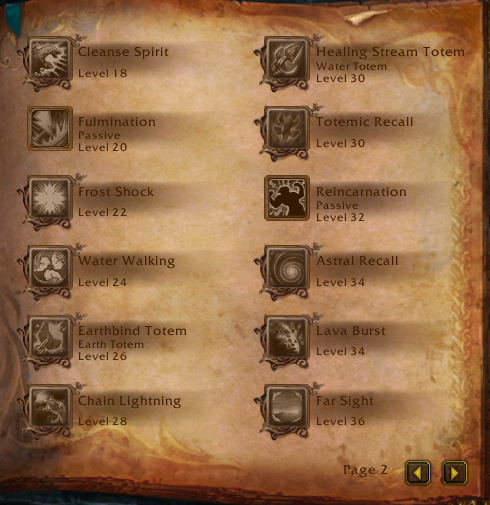
It can also harm your ability to play. Any game that relies on keybinds will also lean on muscle memory — try swapping the keybinds for two abilities, or two important menus, or two anythings in any other game that makes heavy use of the keyboard, and you will invite yourself to a frustrating experience of your conscious self fighting against your muscle memory to remember what is actually where. Leveling constantly introduces new skills into your character’s kit, and some of the most important skills that are vital to performing adequately may be locked out until near the end of the treadmill. If you do not look ahead and figure out your keybinds ahead of time, for every ability that you will eventually be learning, you may wind up needing to place key abilities in more accessible places, while your muscle memory has yet to adjust to the new bindings. My RIFT character, for example, did not learn a key skill until 5 levels before the maximum, and if I had not known this ahead of time, I would have either been forced to readjust everything to fit it, or relegate that important skill to an inconvenient binding.
Furthermore, MMOs are one of the few places where expansion packs are still alive and well, but the first thing players are met with when a new expansion drops is yet another increase in the level cap. This results in a longer grind for newer players, while forcing current players to spend another 20 or more hours reaching the new cap before they can enjoy the real content again. This also acts as an entire wipe of current progression — that sword you finally earned after killing a really challenging boss? Replaced with a random quest reward 3 levels later.
This is often countered with the argument that the leveling experience gives you time to get in tune with your character and learn all of the tricks up your sleeves. This already comes undone when you realize that you are essentially playing the game with half of the tools until you reach the end point and is further beaten into the ground by the fact that leveling typically presents no challenge at all. It is watered down so that anyone can do it, meaning that the difficulty has to be neutered in the name of mass appeal. Areas and enemy types are not separated by how challenging they are to tackle; instead, everything that exists in one area is made for level 7 heroes to plow through until they are level 10, and then they go to the level 10 area and repeat.
This insistence on leveling does more to harm these games as well. Look at any MMO and you will see a vast world that may range from grassy plains to dark, spooky forests, to volcanic mountains that rain down fire and soot. And you will be glad to see these locations for maybe an hour at a time as you speed your way through and then leave them behind forever.
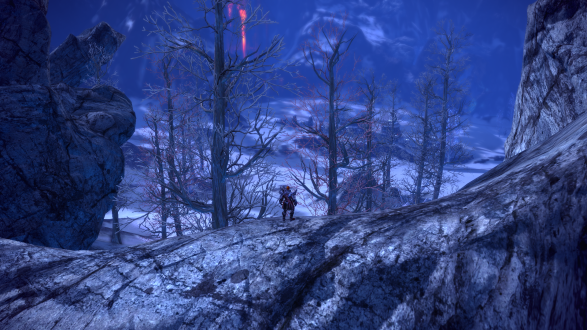
The world is, or at least could be, an important part of an MMO, but the majority of the world becomes meaningless as they are condemned to low level players cruising through for eternity. Climbing that snowy mountain to see the peak loses some appeal when you discover that it is just another stepping stone on your way to the end. All of the effort poured into building these fantastic locations is wasted, because there is no purpose in retreading old ground once it has run its course. Instead, you are stuck with a small spattering of max level areas, offering players little environmental variety as the reward for completing the grind.
The old tradition of leveling up needs to be put to rest for the MMO. Without having to section the world off into level-specified zones, the world of an MMO could actually be made to feel full of life. Actual difficulty could be what separates the many zones, instead of random numerical values. Every section of the world could have some purpose to the inhabitants. Instead of Farmer Johnson telling adventurer after adventurer to go and kill 10 bears to protect his crops that will never grow anyway, zones could have more varied and grandiose quest lines that are designed to challenge players.
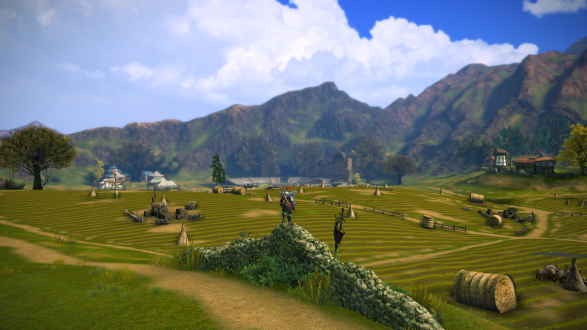
Skills could also be taught slowly through an introductory tutorial tailored for each class — surely it would not take more effort than building an entire world for players to speed through and ignore. A tutorial could even teach newer players the values of advanced keybindings and quick mouse movements, how to use their skills under various dangerous situations, and even what niche situations call for niche abilities.
As it stands now, leveling up in MMOs exists as a cash grab — it is not there to attract or engage. It is there to bore you just enough that you want it over with as fast as possible. It is an anti-consumer practice in a genre that is hungry for consumers. The very existence of leveling restricts the developers in what they can do with the world and acts as a time sink for players who may be looking to try something new within the game. This does not even touch on the grinding that often exists at max level, but I’ve rambled enough for one article.
In the coming weeks, I will be exploring what other failures often burden MMORPGs. For now, what are you feelings about what MMOs are doing wrong? Do you think leveling is as big of a deal as I do? Do you agree that its absence may improve the genre?
Have a tip, or want to point out something we missed? Leave a Comment or e-mail us at tips@techraptor.net
